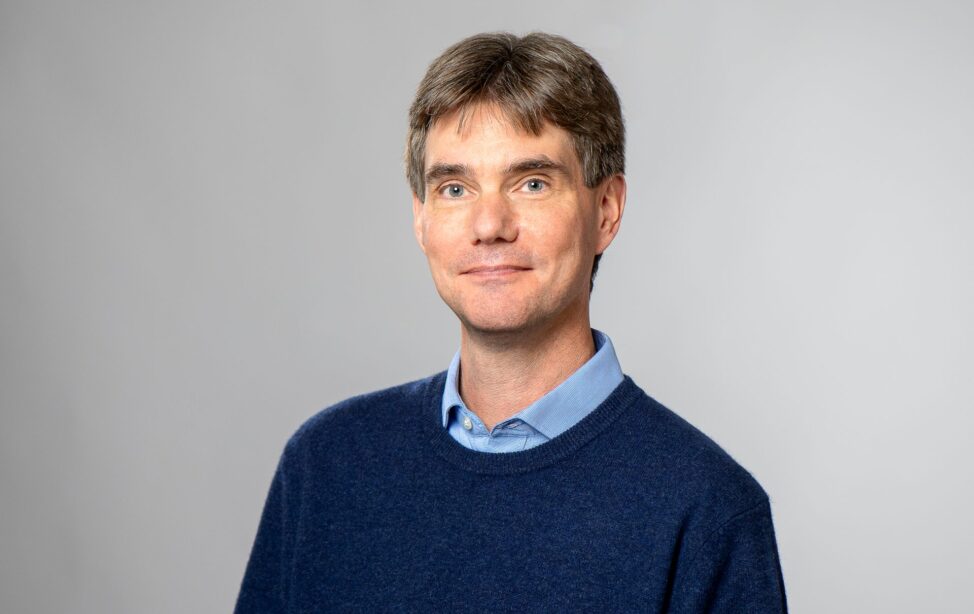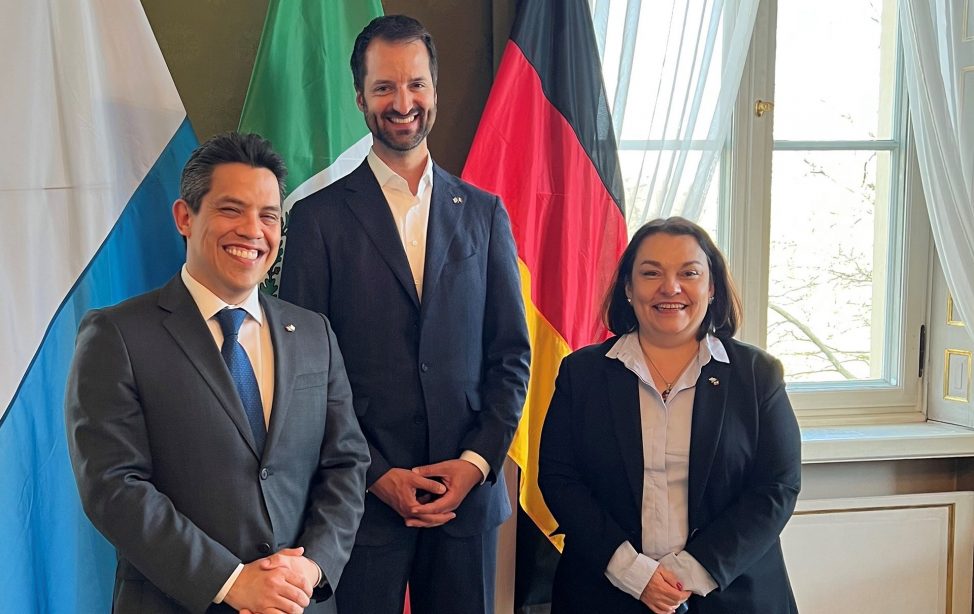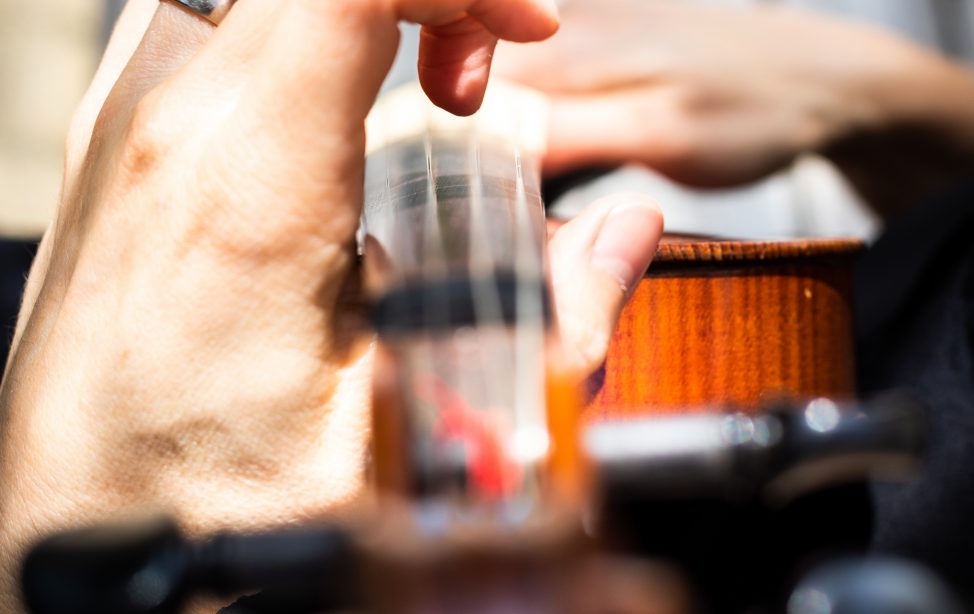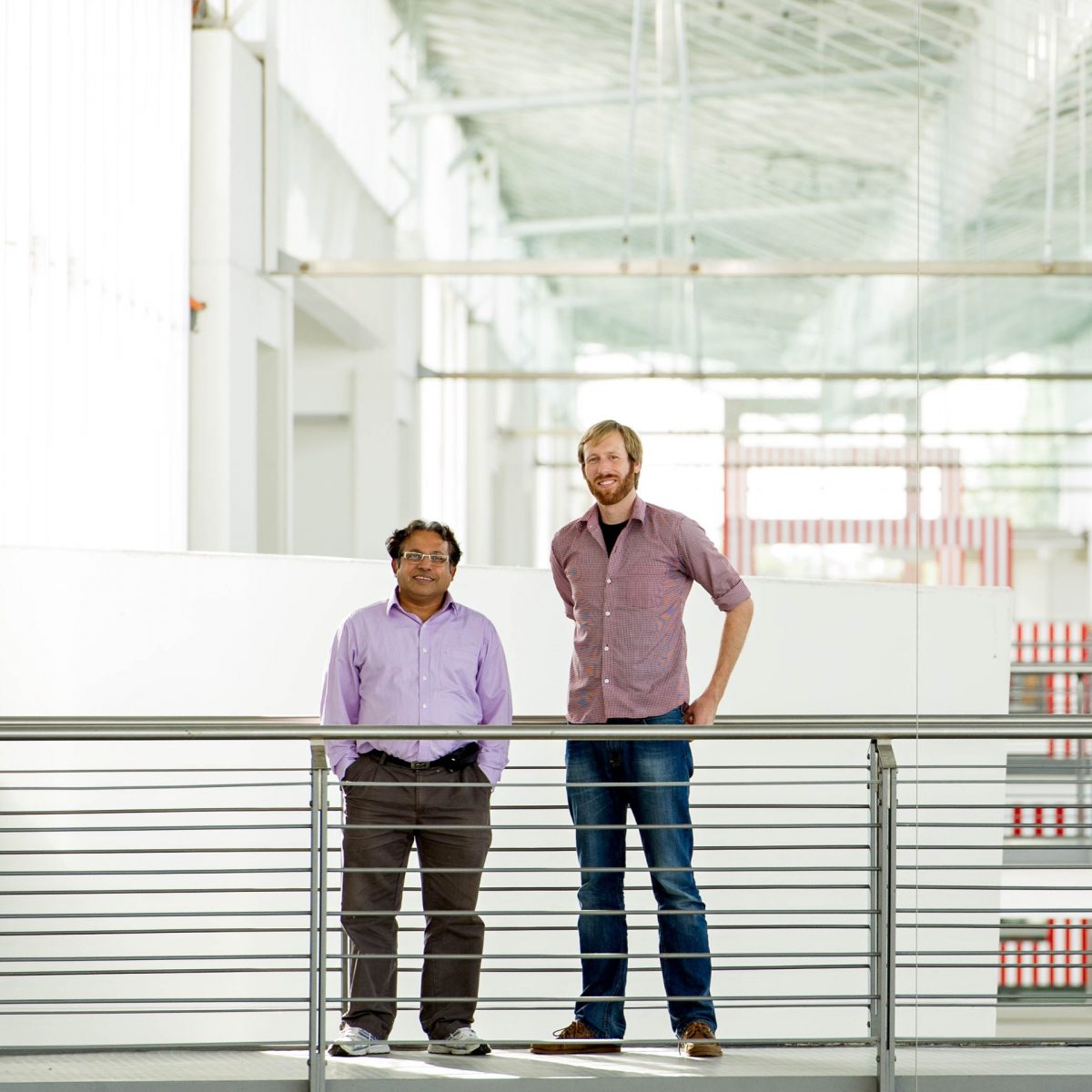
TUM Ambassador Amaresh Chakrabarti is actively involved in TUM Mentoring for Scientists. He invited his mentee Paul Bockelmann to India for a period of stay doing research work (Image: Astrid Eckert/TUM).
A childhood dream fulfilled
As a young and inexperienced man, he let himself be guided more by those around him than by his own deliberate convictions when it came to deciding what subject he would study and what area he would focus on. In retrospect, this actually turned out to be very profitable for Amaresh Chakrabarti. Studying Mechanical Engineering, which he did following the recommendation of a civil engineer friend of his father, and then later specializing in Mechanical Systems Design, which was proposed by fellow students, paved the way for Amaresh Chakrabarti towards a scientific career. And this made his childhood dream of being able to work both scientifically and artistically come true.
Amaresh Chakrabarti achieved both his Bachelor’s degree in Mechanical Engineering and his Master’s degree in Mechanical Systems Design in India as the best in his class and with awards. Following that, his professor presented him with the application forms for a doctorate at a British university. Out of respect for his mentor, Amaresh Chakrabarti filled them out before even realizing what it meant to be recommended to the renowned University of Cambridge. “Only when I received a prestigious scholarship for my doctorate, did I realize once again how lucky I was,” Amaresh Chakrabarti recalls modestly today.
A pioneer in design research
After gaining his PhD, Amaresh Chakrabarti stayed in the UK for another ten years and led the Design Synthesis Team at the EPSRC Centre for Excellence in Engineering Design. In 2001, he was finally called back to India by his alma mater, the Indian Institute of Science. As a leading faculty member, he was asked to help expand the newly founded Centre for Product Design and Manufacturing (CPDM) in Bangalore. “It was my big dream to return to my home country and support the innovation leap India was making at that time with my research and my teaching in Design Theory and Methodology. My alma mater’s reputation at the new Department of Design, which, if done right, would be able to play a crucial role in this, seemed to me just the right opportunity to put my plan into practice.”
Amaresh Chakrabarti set out with indescribable commitment carrying out the pioneering work throughout the country in order to develop the CPDM. He founded the Virtual Reality Laboratory (VRLab) and the IDeaS Lab for Design Research (Innovation, Design Study and Sustainability Laboratory), the first facilities in India for innovative Collaborative Research in areas such as design creativity, design methodology, sustainability, rationale capture and research methodology. He was also co-initiator of the first Indian Design Research Conference and the first formal PhD program in Design in India. Amaresh Chakrabarti proudly reports that hundreds of students have since successfully completed their studies, are among the winners of international competitions and among the founders of innovative start-ups. Amaresh Chakrabarti also co-intiated India’s first Smart Factory (Industry 4.0) as a research platform, and leads a brand new interdisciplinary MTech and PhD programme in advanced and smart manufacturing at CPDM that is about to start from 2019.
Intercultural exchange as a recipe for success
Amaresh Chakrabarti advises his young students to do exactly what helped him towards success: “Work hard and pursue your passion. The rest will come by itself.” Taking from his own experience, he also advises young researchers to always think outside the box and to work interculturally, internationally and inter-disciplinarily. “If you want to be an internationally recognized researcher, you have to have international contacts and intercultural skills,” he says.
At TUM I am judged by my scientific achievements and not by my cultural background.
Science connects people
Demonstrating the same energy as at his own facilities in India, Amaresh Chakrabarti also made use of the diverse possibilities that were presented to him at TUM. He offered a PhD course on Design Research Methodology, held a series of lectures, spoke at panel discussions and organized an international workshop with TUM Professor Udo Lindemann, which led to a joint publication at Springer. Amaresh Chakrabarti remembers his colleague with great respect: “I was judged by my scientific achievements and not by my cultural background”.
Finally, following an Alumni event, Amaresh Chakrabarti spontaneously agreed to mentor a PhD student. Together, they launched the first tandem of the TUM Mentoring for Scientists program, which has since brought international researchers together with young academics. He immediately brought his mentee and another TUM student to India for joint research. “The honorary title of TUM Ambassador, which was awarded to me by President Wolfgang A. Herrmann, makes me proud and humble,” says Amaresh Chakrabarti. “It shows that science is capable of crossing national and cultural borders and connecting people who work together to solve the problems of the world we live in”.
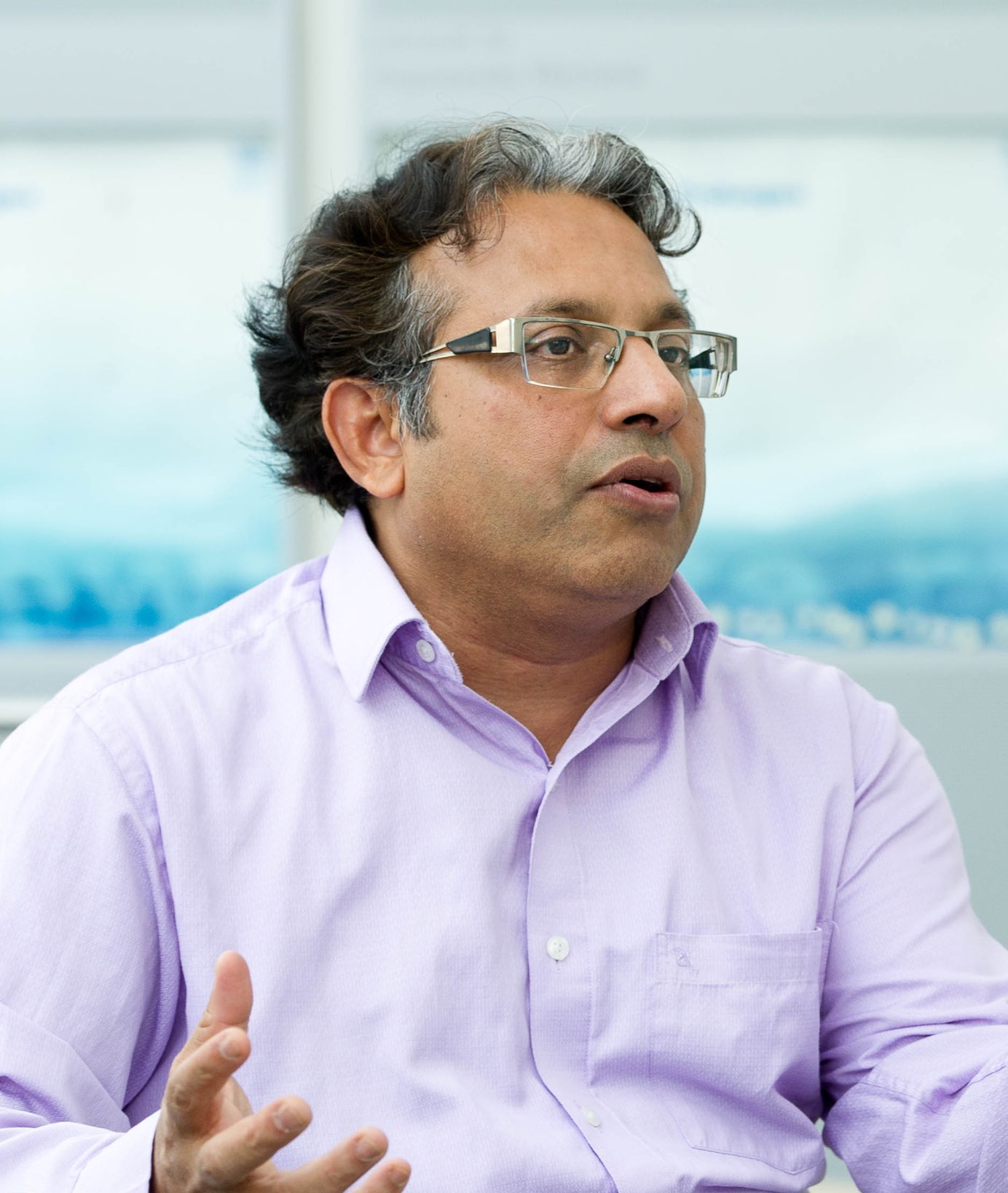
Prof. Dr. Amaresh Chakrabarti (Image: Astrid Eckert/TUM).
TUM Ambassador 2014
Amaresh Chakrabarti was the best in his class when he received his Bachelor’s degree in Mechanical Engineering from the Indian Institute of Engineering Science and Technology in Shibpur, India (1981-1985) and when he gained his Master’s degree in Mechanical Systems Design from the Indian Institute of Science in Bangalore (1985-1987).
He gained his PhD in Engineering Design in 1987 from the University of Cambridge, UK, where he led the Design Synthesis Team at the EPSRC Centre for Excellence in Engineering Design for ten years following his PhD in 1991. In 2001, he returned to his home country to conduct research as an associate professor at the Indian Institute of Science. There he founded the IdeasLab for Design Research, the first laboratory of its kind in India.
Since 2007 he has been Professor of Engineering Design and Product Design at the Centre for Product Design and Manufacturing, of which he has also been the Chairperson since 2015. As a guest researcher, he conducted research at the University of Kobe/Japan (Heiwa-Nakajima Visiting Professorship), Cranfield University/UK, Universitat Jaume I/Spain, DTU/Denmark, and at TUM.
In 2014, TUM President Wolfgang A. Herrmann awarded him the honorary title TUM Ambassador. Amaresh Chakrabarti is an Honorary Fellow of the UK Institution of Engineering Designers (IED), a Fellow of the Cambridge Commonwealth Society and a board member of the UK Design Society.
He has published fourteen books, over 290 scientific articles and has so far filed ten patents. He is the current editor-in-chief for AI EDAM Journal (Cambridge University Press). In his spare time, Amaresh Chakrabarti loves to play football. His wife is a designer and editor at an international publishing house, their daughter is studying Electronics and Communications Engineering at VIT University in Vellore, India. Both accompanied him on his research stay at TUM in Munich in 2013.
